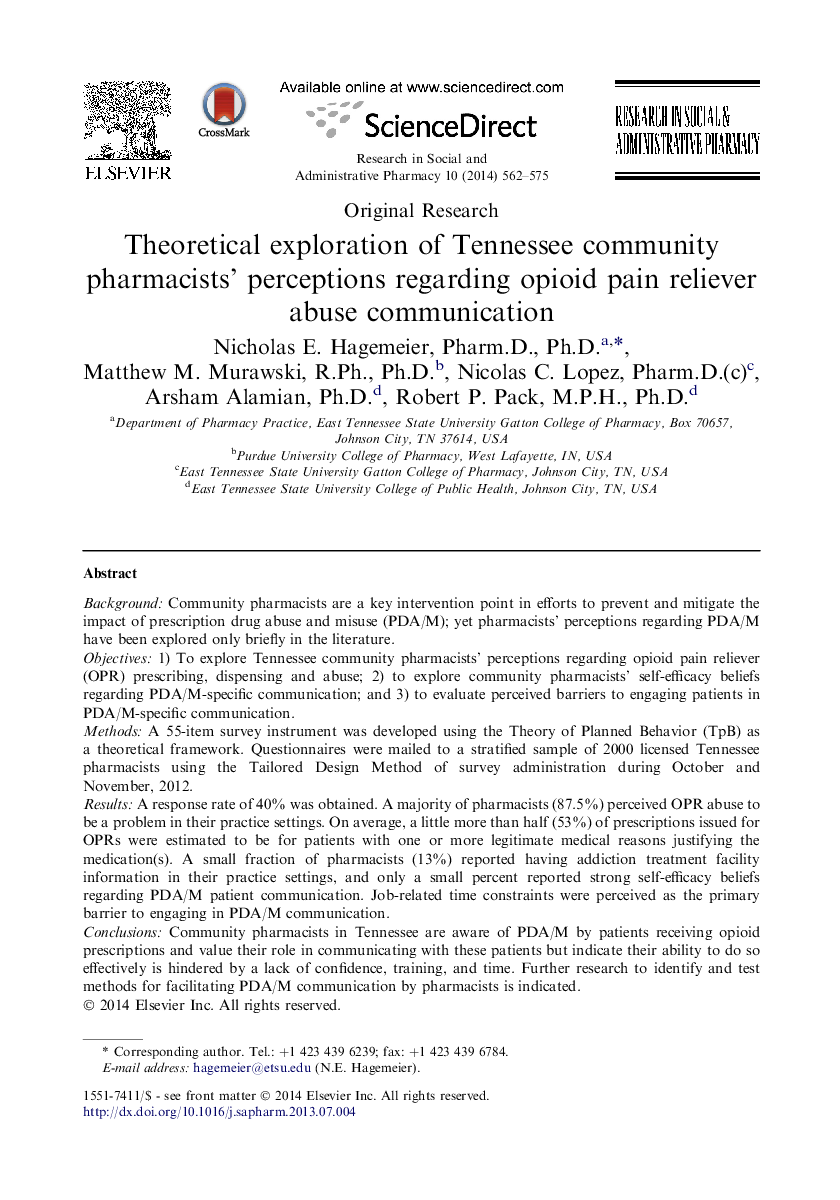| کد مقاله | کد نشریه | سال انتشار | مقاله انگلیسی | نسخه تمام متن |
|---|---|---|---|---|
| 2508608 | 1117614 | 2014 | 14 صفحه PDF | دانلود رایگان |
BackgroundCommunity pharmacists are a key intervention point in efforts to prevent and mitigate the impact of prescription drug abuse and misuse (PDA/M); yet pharmacists' perceptions regarding PDA/M have been explored only briefly in the literature.Objectives1) To explore Tennessee community pharmacists' perceptions regarding opioid pain reliever (OPR) prescribing, dispensing and abuse; 2) to explore community pharmacists' self-efficacy beliefs regarding PDA/M-specific communication; and 3) to evaluate perceived barriers to engaging patients in PDA/M-specific communication.MethodsA 55-item survey instrument was developed using the Theory of Planned Behavior (TpB) as a theoretical framework. Questionnaires were mailed to a stratified sample of 2000 licensed Tennessee pharmacists using the Tailored Design Method of survey administration during October and November, 2012.ResultsA response rate of 40% was obtained. A majority of pharmacists (87.5%) perceived OPR abuse to be a problem in their practice settings. On average, a little more than half (53%) of prescriptions issued for OPRs were estimated to be for patients with one or more legitimate medical reasons justifying the medication(s). A small fraction of pharmacists (13%) reported having addiction treatment facility information in their practice settings, and only a small percent reported strong self-efficacy beliefs regarding PDA/M patient communication. Job-related time constraints were perceived as the primary barrier to engaging in PDA/M communication.ConclusionsCommunity pharmacists in Tennessee are aware of PDA/M by patients receiving opioid prescriptions and value their role in communicating with these patients but indicate their ability to do so effectively is hindered by a lack of confidence, training, and time. Further research to identify and test methods for facilitating PDA/M communication by pharmacists is indicated.
Journal: Research in Social and Administrative Pharmacy - Volume 10, Issue 3, May–June 2014, Pages 562–575
